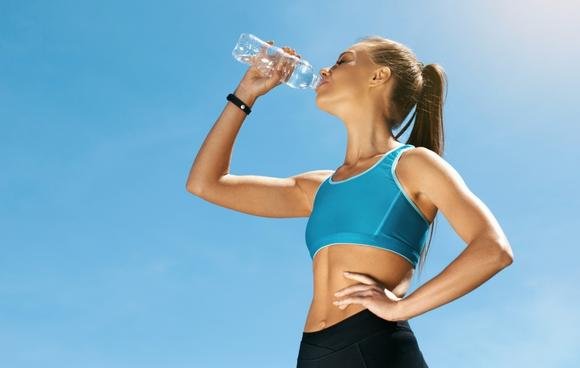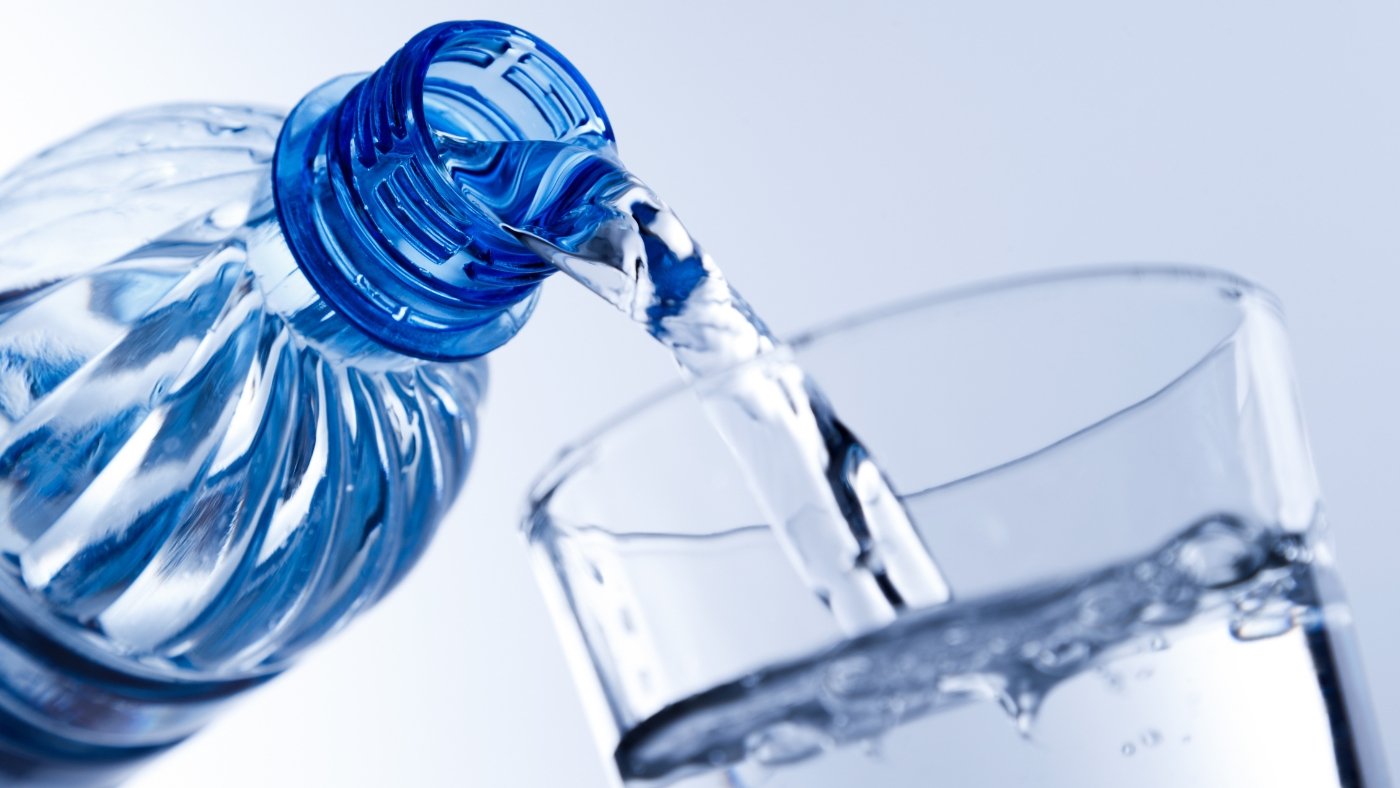We often discuss with each other how much water to drink per day and opinions often differ. Health experts often recommend that people drink eight glasses of water a day. This is commonly known as the “8×8” rule. However, this may not apply to everyone.
Some experts believe that you should keep sipping water throughout the day, even when you're not thirsty.
It will aim to separate fact from fiction and explain how to easily stay well hydrated according to your individual needs.
How much water do we need?

How much water you need depends on many things and the individual. Adults are recommended about:
- 11.5 cups (2.7 liters) per day for women;
- 15.5 cups (3.7 liters) per day for men;
This includes fluids from water, drinks such as tea and juice, and from food. On average, you get 20 percent of your water from the food you eat.
You may need more water than anyone else. How much water you need also depends on:
Places of residence. You will need more water in hot, humid or dry areas. You will also need more water if you live in the mountains or at high altitude.
Your diet. If you drink a lot of coffee and other caffeinated beverages, you may lose more water through extra urination. You will also likely need to drink more water if your diet includes a lot of salty, spicy or sweet foods. Or you need more water if you don't eat a lot of "wet" foods that contain a lot of water, such as fresh or cooked fruits and vegetables.
Temperature or season. In the warmer months, you may need more water than in the cooler months due to sweating.
Your environment. If you spend more time outside in the sun, in hot temperatures, or in a heated room, you may feel thirsty more quickly.
How active are you? If you are active during the day, walking or standing a lot, you will need more water than someone who is constantly sitting. If you exercise or engage in any vigorous activity, you will need to drink more to cover the water loss.
Your health. If you have an infection, fever, or are dehydrated from vomiting or diarrhea, you will need to drink more water. If you have diabetes, you will also need more water. Some medications, such as diuretics, can also cause your body to lose water.
If you are pregnant or breastfeeding. If you are pregnant or breastfeeding, you will need to drink more water to stay hydrated. After all, your body works for two (or more).
Many factors affect how much water you need to stay healthy, such as your health, activity and environment.
Does water consumption affect energy levels and brain function?

Many people claim that our energy levels and brain function start to suffer if we don't drink water throughout the day.
A study in women found that losing 1.36 percent of fluids after exercise worsened mood and concentration and increased the frequency of headaches.
Another study in China involving 12 university men found that not drinking water for 36 hours had noticeable effects on fatigue, attention and concentration, reaction speed and short-term memory.
Even mild dehydration can reduce physical performance. A clinical trial involving older, healthy men found that losing just 1 percent of their body water reduced their muscle strength, power, and endurance.
Losing 1 percent of your body weight may not seem like much, but you need to lose a significant amount of water. This usually happens when you sweat or are in a hot room and don't drink enough water.
Does drinking a lot of water help you lose weight?
There are many claims that drinking more water can help you lose weight by improving your metabolism and reducing your appetite.
The study found that dehydration was linked to obesity, diabetes, cancer, and cardiovascular disease.
Researchers in an older study estimated that drinking 2 liters a day increased energy expenditure by about 23 calories per day due to a faster metabolism.
Drinking water about half an hour before a meal can also reduce your calorie intake. This can happen because the body easily confuses thirst with hunger.
One study found that people who drank 17 glasses (500 ml) of water before each meal lost 44% more weight over 12 weeks compared to those who didn't.
Overall, it appears that drinking adequate amounts of water, especially before meals, can improve appetite control and a healthy body weight, especially when combined with a healthy eating plan.
Does more water help prevent health problems?
Your body needs to drink enough water to function in general. Several health problems may also respond well to increased water intake:
Constipation. Increased water intake can help with constipation, a very common problem.
Urinary tract infections. Recent studies have shown that drinking more water can help prevent recurrent urinary tract and bladder infections.
Kidney stones. An older study concluded that high fluid intake reduced the risk of kidney stones.
Skin hydration. Research shows that more water improves skin hydration, but more research is needed to be more specific and whether there is any effect on acne.
Drinking more water can help with some health problems such as constipation, urinary and bladder infections, kidney stones and skin dehydration.
Can other fluids help as well?

Plain water isn't the only drink that contributes to your fluid balance. Other drinks and food can have a significant effect.
One of the myths is that caffeinated beverages such as coffee or tea do not help with hydration because caffeine is a diuretic (stimulates the production of urine in the kidneys, reducing the amount of fluid and some salts in the body).
In fact, studies show that the effects of these drinks are weak, but they can cause extra urination in some people. Even caffeinated beverages help rehydrate your body.
Most foods contain varying amounts of water. Meat, fish, eggs, especially fruits and vegetables contain water.
Together with coffee or tea and foods rich in water can help maintain fluid balance.
Water balance in the body
Maintaining water balance is essential for our survival.
Because of this, our bodies have a complex system to control when and how much water we drink. When our total water content drops below a certain level, thirst sets in.
This is carefully balanced by mechanisms similar to breathing - we don't have to consciously think about it.
Our body knows how to balance water levels and when to signal to drink more.
Although thirst can be a reliable indicator of dehydration, relying on the sensation of thirst may not be sufficient for optimal health or exercise.
By the time you're thirsty, you may already be feeling the effects of underhydration, such as fatigue or headaches.
Using urine color as your guide, it may be more helpful to find out if you are drinking enough. Aim for pale, clear urine.
If you sweat a lot, be sure to replenish the lost fluid with water. Athletes who engage in prolonged and intense exercise may also need electrolyte supplementation, e.g. sodium and other minerals together with water.
We also need more water when we have a fever, when we are vomiting or have diarrhea. If you want to lose weight, also consider increasing your water intake.
In addition, older adults may need to consciously monitor their water intake, as thirst mechanisms may become impaired with age. Studies show that adults over the age of 65 are at a higher risk of dehydration.
Is water really that important?
No one can say exactly how much water we need. It depends on many factors.
Let's experiment to find out what works best for us. Some people may drink more water than usual, while for others it just results in more frequent trips to the bathroom.
To keep things simple, these rules should apply to most people:
- Let's drink enough often during the day so that the urine is clear and pale.
- When you're thirsty, drink.
- In the case of extreme heat and physical exertion, and in the presence of the other indications mentioned, be sure to drink enough to compensate for lost or additional fluids.
- Everything!
How find out which vitamins, minerals or other supplements the most appropriate at the moment? Try it free test "Your Day" ! where you will find out needs of the body and you will get personal recommendation!











